- Lavely Miller
- Douglas Mason
- Corey Hardeman
- Bob Bickford
- Rosby McCaul
- Diane Beckett
- Chris Robinson
- Tony Martins
- Rob Balcer
- David Himel
- Stephen Peck
- Douglas Mason3
- Elizabeth Hodgson
- Todd Dixon
- Hannah Brown
- K. McLeod
- Gun Roze
- Anonymous
- Sacha Gabriel
- Sean Singer
- Rebecca Blissett
- Dave Cooper
- Jeffrey Mackie
- Douglas Mason2
- rob mclennan
- Donnez Cardoza
- Michael Murray
- Rachelle Maynard
- Jane Wilson
- Alejandro Ballaudo
- Kathryn McLeod
- Jack Neary
- Alf Bogusky
Street corner in Kyiv
And there it was, taped to a drainpipe on a busy street corner in Kyiv, written in neat hand print, and stating the obvious.
I looked around; there was no one. The building itself was closed. And English is not commonly spoken here.
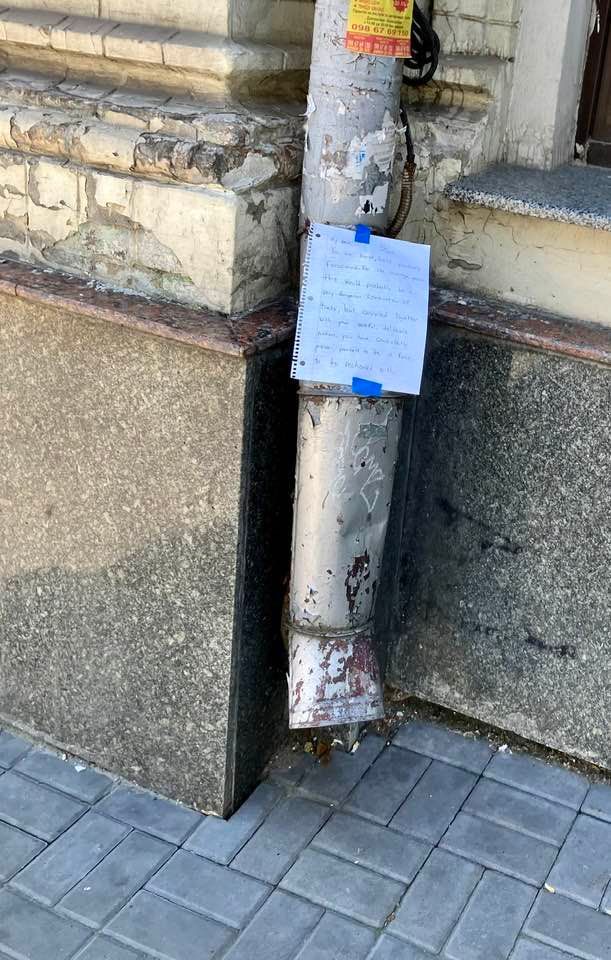
The numbering—14 of 200—speaks of an astonishing and wonderful scavenger hunt. Two hundred love letters scattered across the city.
The strangest and most beautiful thing I’ve ever seen.
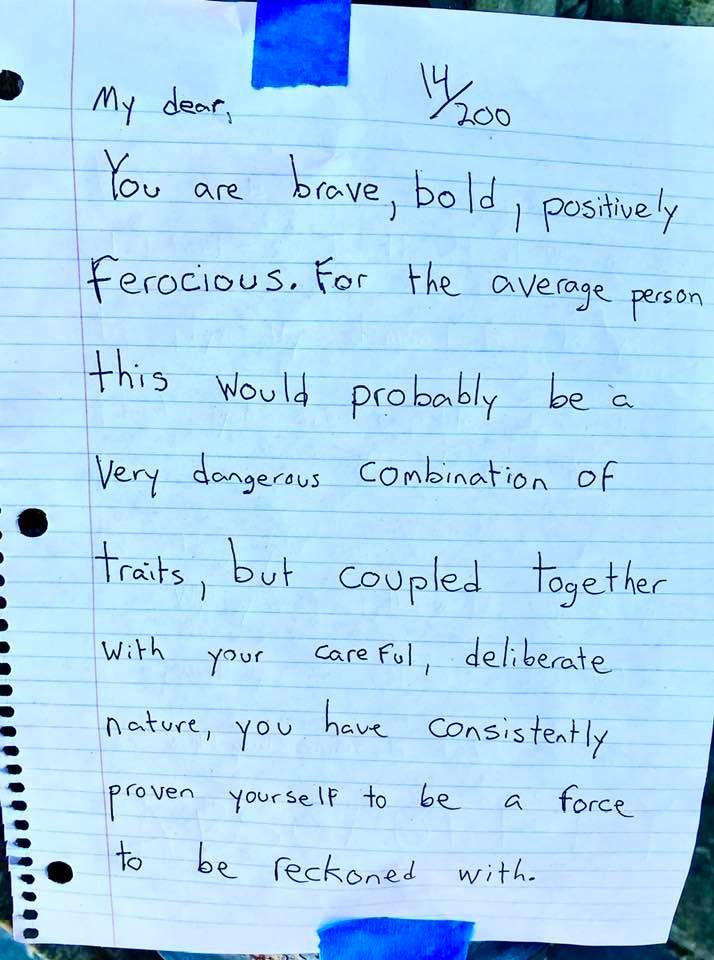
The orphanage
Kyiv, July 31st
You have to love the dogs, love them all; it is like children, you cannot admit to a favourite.
The dogs—six of them—assembled together on an old Persian rug on this street corner, do look like a family.
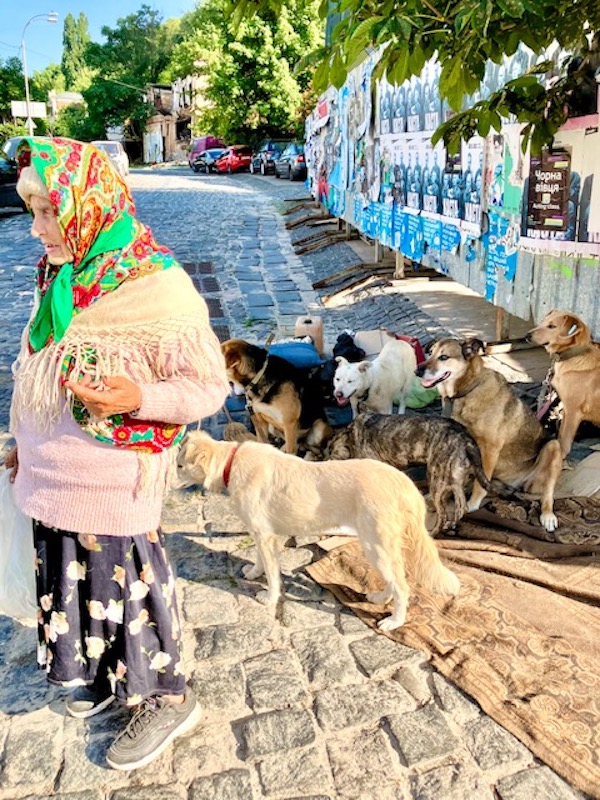
It is an orphanage. I am here every day—people give money to buy food. Since the war there is less money and more dogs, but people help.
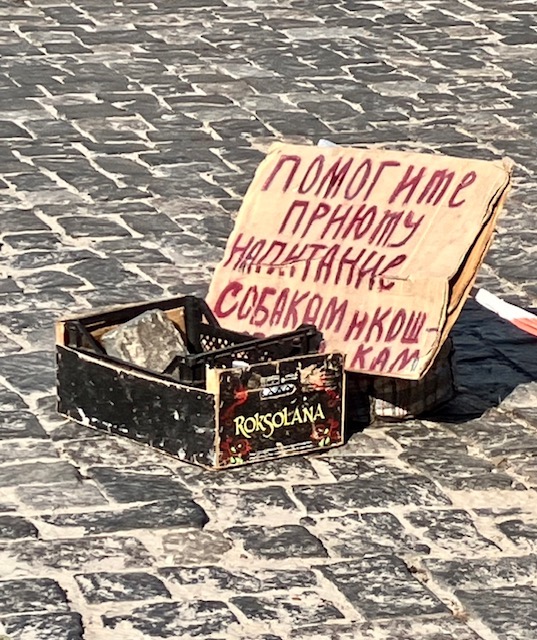
And while we are here on the busy St Andrew’s Descent, a steep winding cobble stone street, next to Bulgakov’s house, people are stopping to make donations, tossing them into an old beaten box laid out on the side walk.
I grew up in an orphanage. We were never allowed to have a dog there.
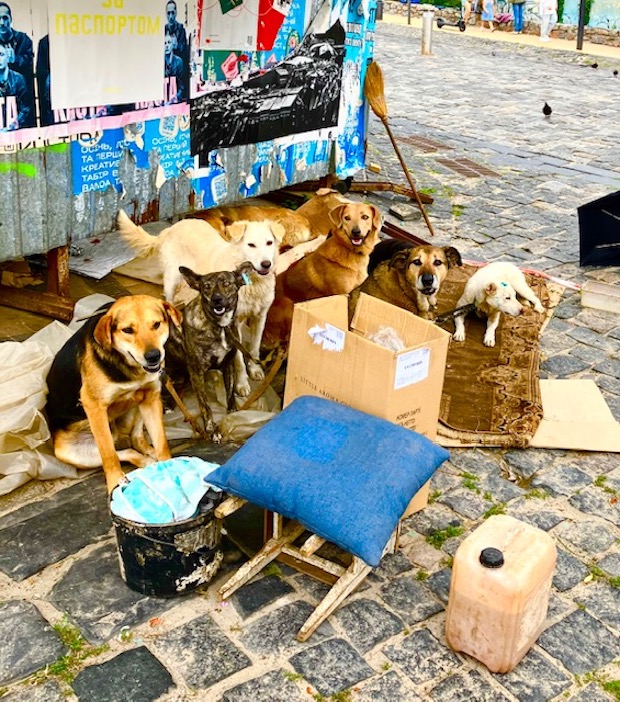
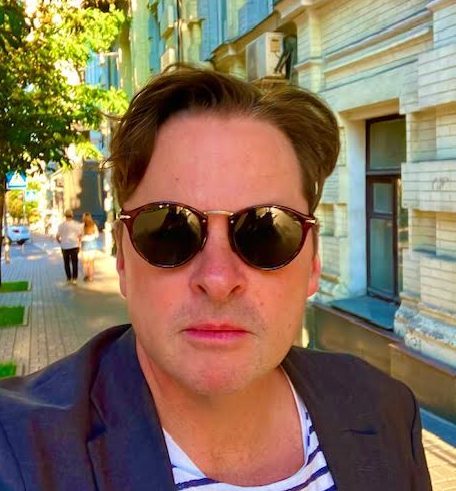
Douglas Mason
Douglas Mason is a Canadian writer and economist who has spent time at the sharp end of things in various countries and now lives in a village in rural South Africa. He believes that liberal democracy, the rule of law, free markets and open societies are things to be cherished. He is on extended assignment in Ukraine.
